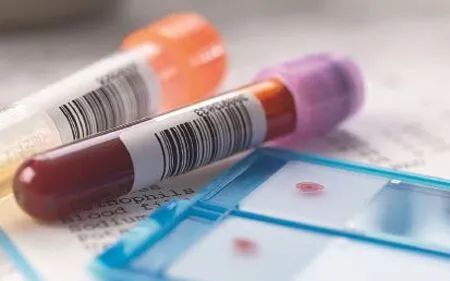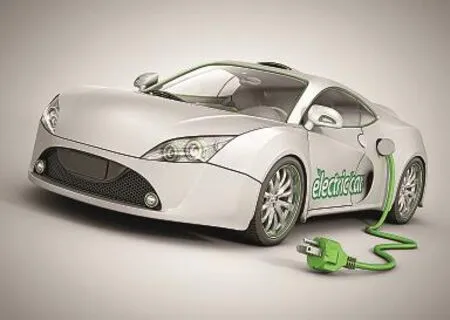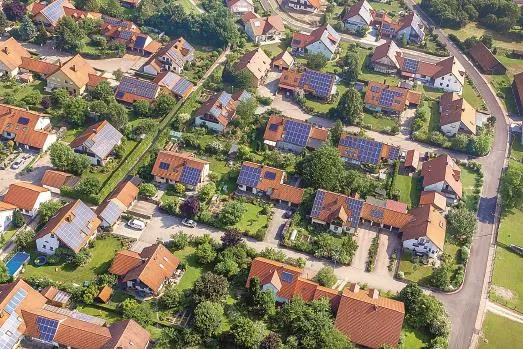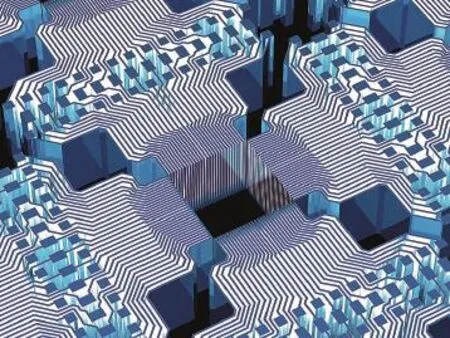Top 10 Emerging Technologies in 2017
2017-09-03TextbyJeffPhotosbyVCGTranslationbyLeo
Text by Jeff Photos by VCG Translation by Leo
Top 10 Emerging Technologies in 2017
Text by Jeff Photos by VCG Translation by Leo
As children, we may have had a dream of what the future world would look like: harvesting clean water from the air, high-tech farming with amazingly high crop yields, identifying cancer without the need of invasive operations, converting carbon dioxide to fuel from artifi cial leaves and the list goes on. The good news is that a recent roundup of the top 10 emerging technologies published during the 2017 Summer Davos in June shows us that those dreams are no longer beyond our reach.
令人期待的十大科技
我们也许曾经幻想过这样一个未来:饮用水可以从空气中直接提取、高科技的农场亩产惊人、医生无需动刀就能确定癌变性质、人工树叶能将二氧化碳直接转化成燃料……一个在2017年夏季达沃斯经济论坛上发布的本年度全球十大新兴技术榜单告诉我们,这样的未来似乎已经不再遥远。

01
Harvesting clean water from the air: Extracting water from the air is not something new, though existing technologies generally require high moisture and a lot of electricity. The problem is becoming more tractable as a group of researchers from the Massachusetts lnstitute of Technology (MlT) and the University of California, Berkeley, have successfully achieved air-to-water conversion with an approach that uses porous crystals and requires no electricity whatsoever.
空气中提取饮用水:从空气中提取水的技术其实并不新鲜,但现有技术需要高含水量的空气以及大量电力。这个现状正在改变,来自麻省理工学院和加州大学伯克利分校的一个科研团队成功利用多孔晶体做到无需电力就实现从空气到水的转换。
02
Non-invasive biopsies for identifying cancer: Ultrasensitive blood tests known as liquid biopsies promise to signifi cantly improve cancer diagnosis and care.
无创技术诊断癌症 :被称为“液体活检”的超灵敏血液检查可大幅降低癌症诊断与护理难度。

03

Deep learning for visual tasks: Al now matches or exceeds the ability of experts in medicine and other fi elds to interpret what they see. Thanks to deep learning, an emerging fi eld of artifi cial intelligence, computer-vision systems are being developed for a range of applications, such as making self-driving cars safer, medical diagnosis, damage assessment by insurers, prediction of crop yields, and monitoring of water levels.
人工智能深度学习:在一张图像面前,人工智能的观察分析能力正在超越医生等人类专家的解读。得益于深度学习(deep learning)这个新兴人工智能领域,计算机视觉技术开始广泛地应用在无人驾驶、医疗诊断、保险索赔损害评估和水位、作物产量监控等领域。
04

Converting carbon dioxide to fuels from artifi cial leaves: Many investigators have contributed over the years to the development of a form of artifi cial photosynthesis in which sunlightactivated catalysts split water molecules to yield oxygen and hydrogen. This hydrogen is then employed in a reduction reaction that converts CO2into hydrocarbons. The process enables the creation of a closed system in which carbon dioxide emitted by combustion is transformed back into fuel instead of adding to the greenhouse gases in the atmosphere.
人工树叶直产燃料:用阳光活化催化剂来把水分子分解成氧和氢,然后用氢将二氧化碳转换为烃类。在这样的封闭系统内,燃烧产生的二氧化碳将被转化回燃料而不是排放到大气中。
05
Using the Human Cell Atlas to personalise healthcare: This international project has been set up to help identify every cell type in every tissue; exactly which genes, proteins and other molecules are active in each type and what processes control that activity; where the cells are located exactly; how the cells normally interact with one another; and what happens to the body's functioning when genetic or other aspects of a cell undergo change, among other details. The fi nal product of the project will be immeasurably valuable for improving and personalising healthcare.
细胞图谱定制健康:项目旨在确定每个组织中的细胞类型;准确了解每种细胞类型中基因、蛋白质和其他分子的活动以及控制该活动的过程;定位细胞;了解细胞如何相互作用;一个细胞的遗传信息发生变化时人类身体功能会发生什么变化。该项目的最终产品对于个性化保健来说意义重大。


06
Precision farming to increase crop yields: Combining sensors and imaging of every plant with real-time data analytics improves farm outputs.
精密农业提高产量:在作物生长过程中,通过传感器与成像技术获取实时数据分析,进而提高农业产量。
07

Affordable catalysts for green vehicles: Many commercial catalysts for hydrogen-fed fuel cells contain the precious metal platinum, which aside from being expensive, is too rare to support ubiquitous use in vehicles. Fortunately, efforts have been made to decrease dependency on platinum. Latest developments include a catalyst without platinum and some giving up metals altogether.
更便宜的新能源车 :氢燃料电池中的催化剂含有价格昂贵的铂,阻碍了技术发展。但是通过努力,目前对这种稀有并且昂贵的铂金属的依赖已经降低。最新的进展包括一种不含铂的催化剂,一些催化剂甚至不含有金属。
08
Genomic vaccines that fi ght diseases faster and better: Compared with manufacturing traditional vaccines (proteins), producing genomic vaccines are simpler and less expensive. Besides, genomic vaccines can be changed readily if a pathogen mutates and enable scientists to identify people who are resistant to a pathogen and isolate the antibodies that provide that protection.
基因疫苗更快更好:与传统的疫苗相比,以基因为基础的疫苗除了生产更为迅速和便宜之外,还能快速适应病原体突变的情况,并帮助科学家辨识出哪些人群对于一种病原体有抵抗力,分离出能够提供保护的抗体。

09
Sustainable design of communities: lnstead of just installing solar panels on buildings throughout the community, urban designers today aim to connect the whole neighbourhood into a sustainable system where energy is recycled, and resources are shared. Applying green construction to multiple buildings at once promises to dramatically reduce the amount of energy and water that the community as a whole consumes.
绿色建筑全面集结:环保居所的设计不只是为一座房子装上太阳能发电板,设计师们要将整个社区的房屋连接起来,打造能源循环、资源共享的可持续发展体系。将绿色建造一次应用于多种建筑中,有潜力为我们所消耗能源和水的数量带来革命性的改变。

10
Quantum computing is becoming more accessible: ln 2016, lBM provided the public access to the fi rst quantum computer in the cloud. To date, more than 20 academic papers have been published using this tool. Today, more than 50 start-ups and large corporations worldwide are focused on making quantum computing a reality.
量子计算渐入佳境:2016年,lBM为公众提供渠道,接入第一台提供云服务的量子计算机。这项行动让20多篇使用量子计算云服务的论文得以诞生,目前还有50多家创业企业和全球大公司专注于让量子计算机成为现实。

